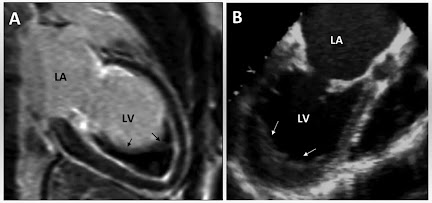Inflammation: Etiology, Pathophysiology, Clinical Manifestations, and Evidence-Based Interventions
Inflammation constitutes a complex biological response to noxious stimuli, encompassing infection, tissue injury, and immune dysregulation. While acute inflammation is integral to tissue homeostasis and repair, persistent or dysregulated inflammation has been implicated in the pathogenesis of numerous chronic diseases, including cardiovascular disease, metabolic disorders, and autoimmune conditions. This article elucidates the multifactorial causes of inflammation, delineates its clinical presentation, and examines both natural and medical modalities for mitigating its adverse sequelae.
 |
| Image source Google |
Pathophysiology of Inflammation
Inflammation is initiated by the activation of pattern recognition receptors (PRRs) on innate immune cells, such as macrophages and neutrophils, in response to pathogen-associated molecular patterns (PAMPs) or damage-associated molecular patterns (DAMPs). This activation triggers intracellular signaling cascades, culminating in the release of pro-inflammatory cytokines, including interleukin-6 (IL-6), tumor necrosis factor-alpha (TNF-α), and C-reactive protein (CRP).
Two principal types of inflammation have been delineated:
- Acute Inflammation: This transient response is characterized by the classical cardinal signs of rubor (redness), tumor (swelling), calor (heat), dolor (pain), and functio laesa (loss of function). The acute phase typically resolves upon eradication of the inciting agent and tissue repair.
- Chronic Inflammation: Prolonged activation of inflammatory pathways leads to sustained cytokine production, tissue remodeling, and fibrosis. Chronic inflammation contributes to pathological states such as atherosclerosis, insulin resistance, and neurodegeneration.
 |
| Image source Google |
Etiological Factors
Multiple exogenous and endogenous stimuli can precipitate an inflammatory response:
- Infectious Agents: Bacterial endotoxins, viral antigens, and fungal components provoke innate immune activation.
- Tissue Injury: Mechanical trauma or ischemia-reperfusion injury initiates sterile inflammation.
- Autoimmune Pathologies: Aberrant immune responses against self-antigens perpetuate chronic inflammation.
- Nutritional Factors: Diets enriched in refined carbohydrates, saturated fats, and processed foods exacerbate inflammatory pathways.
- Psychological Stress: Persistent activation of the hypothalamic-pituitary-adrenal (HPA) axis augments systemic inflammation.
- Environmental Exposures: Pollutants, tobacco smoke, and industrial chemicals serve as pro-inflammatory stimuli.
Clinical Manifestations
Inflammatory processes manifest variably depending on acuity and etiology:
- Acute Inflammation: Presents with localized erythema, edema, hyperthermia, nociception, and functional impairment.
- Chronic Inflammation: May elicit nonspecific systemic symptoms such as fatigue, subfebrile temperatures, gastrointestinal dysregulation, cachexia, arthralgia, and cognitive decline.
Disease Associations
Persistent inflammation is a cardinal contributor to a spectrum of chronic conditions:
- Cardiovascular Disease: Vascular inflammation accelerates atherogenesis and plaque instability.
- Type 2 Diabetes Mellitus: Chronic inflammation disrupts insulin signaling, fostering insulin resistance.
- Rheumatoid Arthritis: Autoimmune-mediated synovitis leads to joint destruction and systemic complications.
- Neurodegenerative Disorders: Microglial activation and neuroinflammation are implicated in cognitive decline.
- Oncogenesis: Chronic inflammatory states promote cellular proliferation, genomic instability, and angiogenesis.
Evidence-Based Strategies for Modulating Inflammation
Mitigation of chronic inflammation necessitates multifaceted interventions:
- Nutritional Interventions:
- Incorporate polyphenol-rich foods such as berries, leafy greens, and cruciferous vegetables.
- Prioritize omega-3 fatty acids from marine sources to counteract pro-inflammatory eicosanoids.
- Physical Activity: Engaging in regular aerobic exercise modulates inflammatory markers and enhances metabolic resilience.
- Psychological Interventions: Mindfulness-based stress reduction (MBSR) techniques mitigate stress-induced inflammatory cascades.
- Sleep Hygiene: Ensuring adequate and restorative sleep downregulates inflammatory mediators.
- Environmental Modifications: Minimize exposure to air pollutants, tobacco smoke, and industrial toxins.
Pharmacological Interventions
In cases of pronounced inflammation, pharmacotherapeutic interventions may be warranted:
- Nonsteroidal Anti-Inflammatory Drugs (NSAIDs): Inhibit cyclooxygenase (COX) enzymes, attenuating prostaglandin synthesis.
- Corticosteroids: Suppress gene transcription of pro-inflammatory cytokines via glucocorticoid receptor-mediated mechanisms.
- Biologics: Monoclonal antibodies targeting TNF-α, IL-6, or IL-1 have revolutionized treatment paradigms in autoimmune diseases.
Preventative Strategies
Adoption of anti-inflammatory lifestyle practices is pivotal:
- Embrace a Mediterranean-style diet replete with phytochemicals and monounsaturated fats.
- Maintain a healthy body mass index (BMI) through regular physical activity.
- Optimize hydration status.
- Minimize exposure to environmental toxins and adopt stress-reduction practices.
Conclusion
Inflammation represents a sophisticated and indispensable physiological response. Nonetheless, its chronic dysregulation underpins a multitude of pathological states. Integrating evidence-based nutritional strategies, physical activity, stress management, and judicious pharmacologic interventions can modulate inflammatory processes, fostering optimal health outcomes. Personalized medical consultation is essential to tailoring interventions to individual inflammatory profiles.






No comments:
Post a Comment
Please do not enter any spam link in the comment box